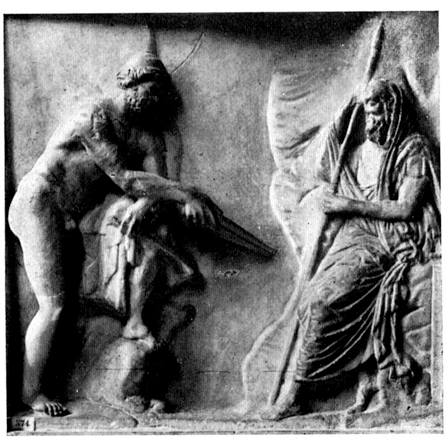Monday, May 2: Spirit of the Law
DO WE NEED NEW PLOTS?
by Janice Law
Years ago I had the task of teaching somewhat reluctant students the refinements of English style. These were nice people who had difficulty telling Shakespeare from Austen or Keats from Ginsberg, and to assist them, I made up a sheet of quotations. This required typing and a mimeo machine, and anyone who knows what they are has been around for a while. Anyway, each quote was the introduction of the detective from a famous story, starting with Genesis, where the Lord is the P.I. of the moment and begins seeking the whereabouts of the missing Abel.
Readers with a Biblical background will recall that Cain, the first punk in recorded history, basically responds, “How should I know?” or more elegantly in the King James version, “Am I my brother’s keeper?”
Other famous sleuths made an appearance in the exercise, notably King Oedipus, whose investigations and self exploration proved fruitful for Freud as well as detection. Being a mere mortal, Oedipus had to rely on the best forensics of his time, namely a consultation with the oracle at Delphi and a conference with Tiresias, whose unique physical and sexual history gave him unusual insight into human nature.
As king, or as the play dubs him, tyrant, Oedipus had certain political responsibilities, and if much has changed in our neck of the woods, a mix of confidence and bombast were required then as now. Oedipus assures the Thebans that he feels their pain and promises to end the plague by finding the guilty party.
Bemused by oracles and magic snakes, the modern reader may find it difficult to believe that the killing of an arrogant old man would have slipped Oedipus’ memory. However, a thought for Sudan, Congo, or the Tex-Mex border may put us in the right frame of mind for what is recognizably already a P.I. story with political overtones.
Hamlet, the dithering detective, had to be included, for he’s the prototype for all who try to tease out truth from the seats of power. I ended with one of my all time favorites, Philip Marlowe, named for the Elizabethan playwright, who was himself a spy and so, tangentially, in the detective business.
I was thinking about this little exercise the other day, when I was considering the antiquity of so many of the forms of mystery fiction. A crime is committed, preferably murder, though the Victorians and Edwardians rather liked thefts of fine jewelry. A detective, public or private, goes to work questioning suspects and examining evidence. There is danger and adventure, concluding with the apprehension of the guilty and the restoration of social order.
My question to myself was, is this still enough? Particularly in short fiction, the traditional pattern and traditional crimes remain the norm. Indeed, it is difficult to sell, even if one can construct, an alternative to what might be called ‘personal’ crimes of violence. Yet, as the recent financial crisis suggests, enormous damage can be done to individuals and to whole societies by ‘impersonal’ crimes, that is, white collar crimes and corporate recklessness or outright malfeasance.
In an era when corporations often have more income than nation states and when fiscal manipulation is a source of truly colossal wealth, there are new forms of crime that do not lend themselves easily to our traditional plot structures. Add in the experience of failed, kleptomaniac, and outright criminal states, and we have to ask if our favorite genre is quite as relevant as it used to be.
Of course, as the song goes, “it’s still the same old story, a fight for love and glory,” but the mystery reached its present popularity as an adjunct to the rise of democratic states with their concomitant belief in the reasoning powers of the ordinary man and woman. There’s a reason why the detective is so often rumpled and untidy and dressed strictly down market.
Now with the increasing power of remote economic forces and the enormous impact of technology, I suspect that some new plot lines are needed to keep short mystery stories, in particular, relevant. After all, other favorites have come and gone. The country house mystery had a last hurrah in Gosford Park, but for the most part the aristocratic detective and the well appointed smoking room are nostalgia items, while the gothic is now an object of academic interest, a true sign that it has lost its spark.
And although the noir spirit continues, even some of the best examples are consciously retro. Gumshoes in trench coats and fedoras are not reports from the streets anymore but entertainment as stylized as the locked room mystery.
Where’s the next big plot variation to come from? I wish I knew. Some novel length thrillers rely heavily on conspiracy plots, and cyberpunk has explored the thrills and perils of the computer. Can some of this material be treated in the short form? And can we devise new plots for the new crimes of the 21st century? I think we’d better.


























